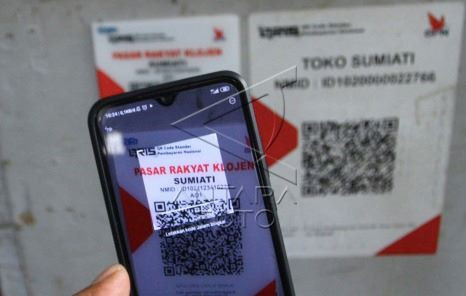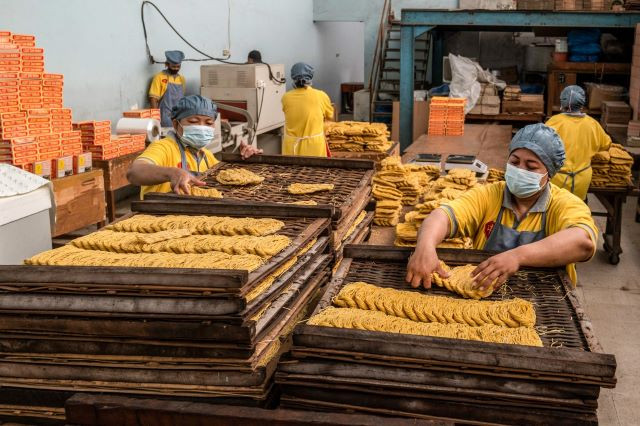Popular Reads
Top Results
Can't find what you're looking for?
View all search resultsPopular Reads
Top Results
Can't find what you're looking for?
View all search resultsFraud: A culturally constructed phenomenon
Fraud is and always will be a product of human interaction, and every society has its own set of values influencing the way people act.
Change text size
Gift Premium Articles
to Anyone
 Loan fraud suspect Maria Pauline Lumowa (center) arrives at Soekarno-Hatta International Airport on July 9 escorted by National Police personnel and the Law and Human Rights Ministry's extradition team. Serbia granted Indonesia's request for the extradition of the fugitive, who had been wanted for 17 years for allegedly stealing billions of rupiah from Bank Negara Indonesia in a 2003 loan fraud operation. (JP/Seto Wardhana)
Loan fraud suspect Maria Pauline Lumowa (center) arrives at Soekarno-Hatta International Airport on July 9 escorted by National Police personnel and the Law and Human Rights Ministry's extradition team. Serbia granted Indonesia's request for the extradition of the fugitive, who had been wanted for 17 years for allegedly stealing billions of rupiah from Bank Negara Indonesia in a 2003 loan fraud operation. (JP/Seto Wardhana)
T
he Indonesian chapter of the Association of Certified Fraud Examiners (ACFE) recently released a report on occupational fraud in Indonesia called Survei Fraud Indonesia 2019 (SFI 2019). The respondents in the surveys were antifraud practitioners and scholars in Indonesia.
The report provides a picture of trends in occupational fraud in Indonesia and explores how it affects various organizations in the country. It also depicts patterns of behavior and the multiple ways occupational fraud is perpetrated. Based on the survey, the majority of the identified occupational fraud schemes in Indonesia are those of corruption.
The survey covers multiple types of fraud under three broad categories, corruption, asset misappropriation and financial statement fraud. The survey found that the greatest number of fraud offenses were made by employees of organizations (31.8 percent). The second and third largest groups consisted of directors and owners of companies or organizations (29.4 percent) and managers (23.7 percent) respectively.
The report also identified employees as the largest source of fraud reporting in their organizations (50.2 percent). Based on the report, the most financially damaging fraud incidents were those perpetrated by managers and directors/owners with losses per case ranging from Rp 500 million (US$34,400) to more than Rp 10 billion. The higher losses could be associated with the higher level of knowledge and experience of managers, directors and owners. Additionally, the high-value fraud was also related to the opportunities that came with their positions.
Over the years, scholars have conducted various studies to determine why fraud occurs and to find ways to put an end to it. Fraud has been found to be a culturally determined phenomenon. Fraud is and always will be a product of human interaction, and every society has its own set of values influencing the way people act.
Indonesia is generally known as a highly collectivistic culture with high power distance. Such cultural dimensions are manifested in various characteristics of the behavior of Indonesians. According to the SFI 2019, a plurality (36 percent) of occupational fraud schemes in Indonesia were perpetrated by groups of four people or more. This correlates with the notion that in a collectivistic culture, many people prefer to be part of groups, including when committing unlawful activities. Within a collectivistic society, because of the “we” consciousness, opinions are often determined by groups.
More than 55 percent of fraud offenders identified in the SFI 2019 had never been charged before, which means they may have started their career as honest and accountable people. This, of course, raises questions about what might drive an otherwise honest person to commit fraud. According to differential association theory, criminal behavior is generated through a learning process. Individuals learn about how to commit crimes from their interactions with others. The learning process includes criminal techniques, motives and, in many cases of occupational fraud, rationalization.

















